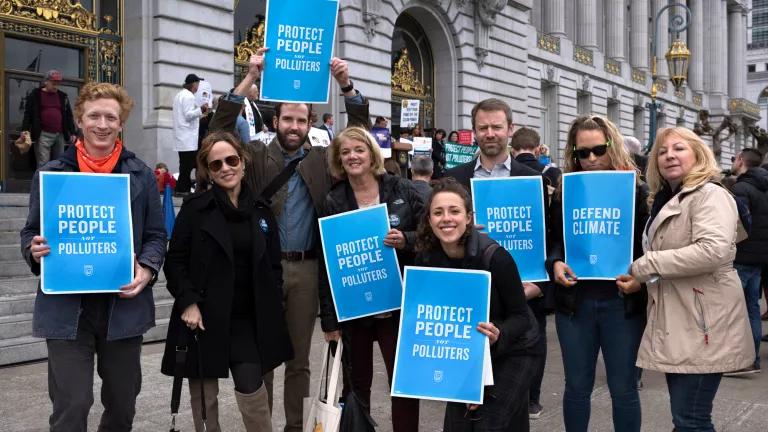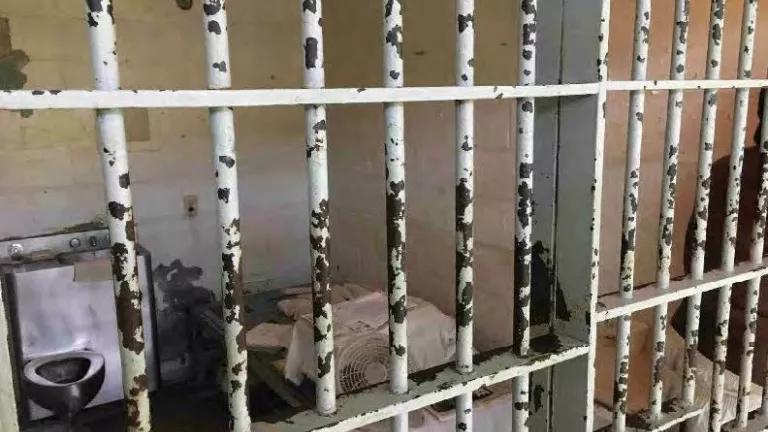It's Time to Restore Dr. Martin Luther King's Legacy
Today we honor the legacy of the Rev. Dr. Martin Luther King Jr., and his lifetime commitment to helping to perfect our democracy and give it meaning for all our citizens. Among many of his famous quotes, Dr. King said, “Give us the ballot, and we will no longer have to worry the federal government about our basic rights.” Dr. King recognized the connection between voting rights and the right to clean air, water and public lands.
Perhaps Dr. King’s crowning achievement in that struggle was his advocacy for the Voting Rights Act of 1965. Despite the 1870 ratification of the 15th Amendment, which guaranteed the right to vote to all citizens regardless of race, color, or previous condition of servitude, many states, especially in the South, continued to do everything in their power to prevent people of color from voting. Poll taxes and literacy tests were among the legal mechanisms.
As often as one of these preventive measures was struck down by the U.S. Supreme Court, those communities intent on discriminating against people of color would find something else more creative or more violent. Those communities also resorted to intimidation along with horrible acts of physical violence. It is not hyperbole to say countless numbers of people died attempting to exercise their right to vote.
President Lyndon Johnson, with Dr. King and many Civil Rights leaders at his side, signed the Voting Rights Act into law on August 6, 1965. A cornerstone of this law is the section 5 preclearance requirement. The Section 5 preclearance requirement prohibits certain jurisdictions from implementing any change affecting voting without receiving preapproval from the U.S. Attorney General or the U.S. District Court for the District of Columbia.
The jurisdictions subject to section 5 preclearance were those jurisdictions that engaged in egregious voting discrimination in 1965. Section 4(b) of the Voting Rights Act provided the formula to determine which jurisdictions were subject to section 5. Congress saw fit to reauthorize the Voting Rights Act in 1970, 1975, 1982 and in 2006. Sadly, in 2013 the U.S. Supreme Court, in Shelby v. Holder, found section 4(b) of the Voting Rights Act unconstitutional. The result was to effectively render Section 5 of the Act null and void.
Predictably, many of the jurisdictions previously subject to Section 5 preclearance followed this decision by implementing changes that have primarily discriminated against people of color. Since the Shelby decision, nearly 1,000 polling places have been closed nationwide. The vast majority were in minority neighborhoods, according to a study conducted by the Pew Charitable Trusts. Many States have enacted onerous voter identification requirements, which are designed to reduce minority voter registration and turnout.
Three years prior to the Shelby case, the Supreme Court, in the opinion of many, did another disservice to democracy in the Citizens United v. FEC case. In Citizens United, the Supreme Court allowed for unlimited corporate expenditures in elections.
I believe that, like so many others, Dr. King would vehemently disagree with those decisions, which take power away from many by allowing discrimination against communities of color, while giving more power to corporations that, in turn, pollute our air, water and public lands.
Congress has an opportunity to change that by passing the “For the People Act.” The “For the People Act” will reaffirm the commitment of Congress to restore the Voting Rights Act and add some well needed reforms that will increase voter participation instead of supressing the vote in communities of color and among students and the elderly. The bill will also limit the influence of the well-heeled corporate polluting class on the electoral process. Congress should truly honor the legacy of Dr. King and quickly pass HR. 1, the For the People Act.



